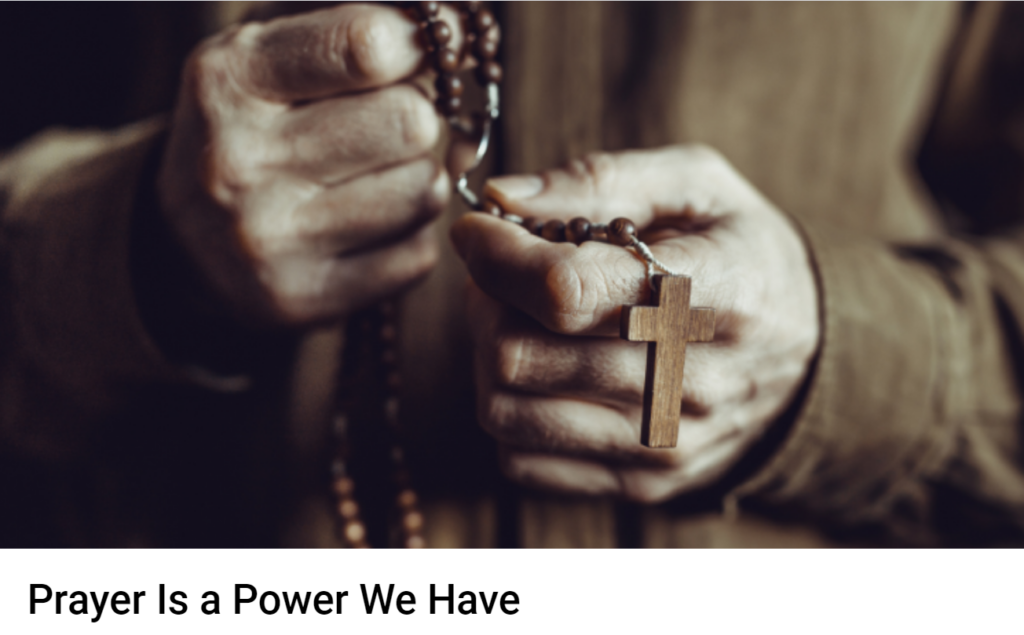
//Bob Holmes Contemplative Monk//

416 N 2nd St, Albemarle NC 28001 | (704) 982-2910

//Bob Holmes Contemplative Monk//

The more we try to rely upon external threats, the less we are in touch with our own internal power. They tend to cancel one another out. Conversely, the more we are in touch with our own inner power, the less need we have for any external force, threat, or pressure. I would almost describe spirituality as a concern for our being, our inner motivation and attitude, our real inner Source, as opposed to any primary concern for our doing. Doing will always take care of itself when our being is right. It is our preoccupation with external forms and successes that makes us superficial, judgmental, split off, and often just downright wrong—without knowing it.
— from the book Things Hidden: Scripture as Spirituality by Richard Rohr, OFM, page 93
//Franciscan Media//

“The name of Jesus, pronounced with reverence and affection, has a kind of power to soften the heart.”
— St. Philip Neri
//Catholic Company//

Power cannot, in itself, be bad. It simply needs to be realigned and redefined as something larger than domination or force. Rather than stating that power is bad, the Bible reveals the paradox of power. If the Holy Spirit is power, then power has to be good, not something that is always the result of ambition or greed. In fact, a truly spiritual woman, a truly whole man, is a very powerful person. In people like Moses, Jesus, and Paul, we can assume that it was precisely their powerful egos that God used, built on, and transformed, but did not dismiss. If we do not name the good meaning of power, we will invariably be content with the bad, or we will avoid our powerful vocation.
— from the book Things Hidden: Scripture as Spirituality by Richard Rohr, OFM
//Franciscan Media//

The more we try to rely upon external threats, the less we are in touch with our own internal power. They tend to cancel one another out. Conversely, the more we are in touch with our own inner power, the less need we have for any external force, threat, or pressure. I would almost describe spirituality as a concern for our being, our inner motivation and attitude, our real inner Source, as opposed to any primary concern for our doing. Doing will always take care of itself when our being is right. It is our preoccupation with external forms and successes that makes us superficial, judgmental, split off, and often just downright wrong—without knowing it.
— from the book Things Hidden: Scripture as Spirituality by Richard Rohr, OFM
//Franciscan Media//

Prayer is not only a need that each of us has; it is also a power. Jesus has told us that whatever we ask in his name, God will give us. And because prayer is a power, it is also a responsibility and challenge. It is a responsibility because through prayer we can join with Christ in redeeming the world. If we pray only for ourselves or about ourselves, we have not yet learned to pray, for prayer is outward- reaching and all-embracing. A good barometer of where we are in our union with God is whether or not our prayer reaches out to all people. If my prayer centers mainly on myself, then that is where I am. The true prayer accepts Christ’s challenge to join with him in opening his or her arms to all. And as one’s prayer becomes more cosmic and other-centered, so does one’s thinking and attitudes.
— from the book Song of the Sparrow: New Poems and Meditations by Murray Bodo, OFM
//Franciscan Media//

I imagine it will take me longer than the rest of my life truly to meet the world as its own subject rather than as the object of my own plans and priorities. But slowly, slowly, I’m learning. Whenever I take a meandering walk, or watch the hummingbirds at our feeder, or just sit under the trees on our front lawn, feeling the Earth beneath me and the breeze on my skin, I feel that my own roots are growing deeper, intertwining with those of the trees, and all seeking a common Source: the divine power that holds everything together. The more time I spend, agendaless, in and with the rest of nature, the broader and deeper grows my sense of connection, my sense of kinship, the feelings of love and the commitments of love. Though native to us, that bond must be nurtured, and its primary nutrient is time. Time is the good soil in which relationships grow and flower. Time, given with presence rather than preoccupation, is the greatest gift. There is no substitute.
— from the book Making Room: Soul-Deep Satisfaction through Simple Living
by Kyle Kramer
//Franciscan Media//


“ O almighty and merciful God, Lord of the universe and of history. All that You have created is good and your compassion for the mistakes of mankind knows no limits. We come to You today to ask You to keep in peace the world and its people, to keep far away from it the devastating wave of terrorism, to restore friendship and instill in the hearts of your creatures the gift of trust and of readiness to forgive.”—Pope Francis
Pope Francis never hesitates to turn the light of truth inward as well as outward. The Gospel, especially as John tells it, reminds us that Jesus suffered as much at the hands of those who shared his religious faith as he did at the hands of outsiders. Persecution happens because of misguided power, anger at perceived injustice, fear of those who are not like us, who don’t share our beliefs and sometimes even our opinions. What begins as a disagreement over ideas can be magnified and escalated into rejection, ostracism, violence, and even death. And it can—and does—happen among Catholics of different philosophies, between Catholics and other Christians, between Christians and those of other faiths. In today’s Gospel the Pharisees sneer at Nicodemus when they ask if he, too, is from Galilee, a rural region that the residents of Jerusalem considered backward and inferior. We do this even today. We think we know how people will behave based on what part of the country they’re from. We divide our own cities and towns into good areas and bad areas. We absorb the prejudices of lifelong citizens even when we’re new to an area. Often we wouldn’t think of going to another part of town because of what we think we know about it, often based only on what we hear from others. Spend some time today learning about another faith, another culture, another set of beliefs. Set aside as much as is humanly possible the division of us and them, me and other. Look at the world from someone else’s perspective.
— from the book The Hope of Lent: Daily Reflections from Pope Francis
by Diane M. Houdek
//Franciscan Media//

I am afraid we are all born rather egocentric. We are the only reference point that we have, at least initially. “It’s all about me, and why shouldn’t it be?” If Mom and Dad mirror us well, we soon develop “mirror neurons” for empathy and relationship with others, but even other people can still be seen as mere means to my own power and pleasure. Or I can think I deserve everything, which we call a sense of entitlement.
Unless there is some pressure, social or parental, pushing the infant beyond the pleasure principle, human nature tends to largely take the path of least resistance. We really do need prods, goads, ideals to help us think outside of the little boxes we all create for ourselves. That is the function of laws and commandments. Only in the more mature person can love and grace take over—or even be understood.
—from the book Wondrous Encounters: Scriptures for Lent
by Richard Rohr, OFM
//Franciscan Media//